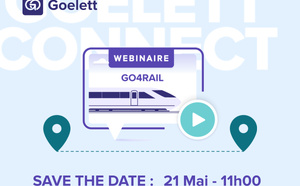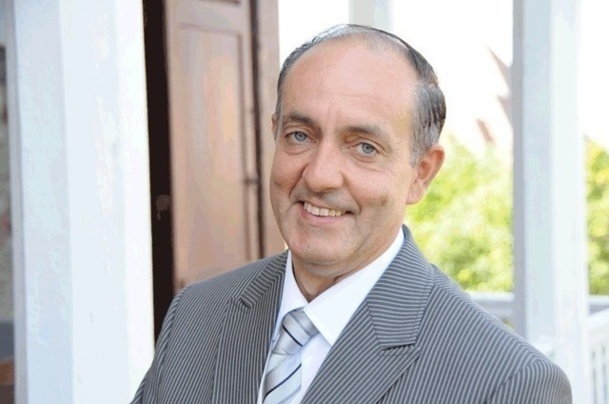
Guy Raffour: “Agencies will persevere by excelling in customer service”
i-tourisme: Your study points out to an important evolution: travel agencies have adapted their hours of operation to be open more during the times when leisure travelers do not work, such as lunch time during the week and on Saturdays. What does this mean?
Guy Raffour: “Travel agents are adapting to the new requests for availability in relation with the omnipresence of online agencies.
In 6 years, the study shows, there has been a real progress of agents on that aspect: 82% of them have adapted their hours of operation.
Being able to come to an agency at other moments than peak times and when we have free time is an advantage.
Thus, 58% of travel agents open during lunch time in the week as well as Saturdays during the day. 25% in the evening during the week, and 5% on Sunday mornings. It is an evolution that should spread everywhere.
The agents’ strength is being available, the possibility of creating a dialogue, attracting the client, and through an adequate response, have him book a reservation.
This face to face interaction and customized assistance in a client’s trip plan provides lots of added value. Listen, reassure, answer questions, advise, share a lived experienced…
Choosing a trip for a client is an act that requires involvement and during this time of crisis, the client wants to optimize his holiday budget for which he has worked hard and hopes to find a trip meeting those standards, meaning customized.
When there are no clients inside the agency, it gives the agent time to take care of all online relations, through a multichannel strategy. He can optimize his time that way.
He can offer clients trips, give them ideas and see their response to orient research, look out for destinations, read reviews, have some written etc…
The multichannel highlights the relation and also allows to grasp new clients who benefit then from online resources while being advised by a real person.”
i-tourisme: In your eyes, a multichannel strategy is the key to success. Why?
GR: “Online, agents can emphasize their attentiveness to clients via tools that heighten their performance: SMS, email, social networks, mobile, website…
In any case, the evolution of online services is unavoidable. Today, people, depending on the time, day, place, seize the best way to respond to their needs at a specific time.
91% of French travelers use the web, 62% prepared their trip online et 45% reserved online.
So it is necessary to impose your presence everywhere to grasp the client and stay in contact with him, whether face to face or online. And the online resources created by the agency can assure a permanent presence even when the agency is closed: with a direct follow-up via the Internet right when it opens its doors again.
And the multichannel also applies to pre-sales - ideas, propositions - , during the trip - assistance for services - and after the trip - social networks, exchanges, promotion.
The agency has to valorize itself online thanks to its customized knowledge of clients, their projects, providers, and if possible destinations, thanks to e-learning, educational tours, workshops, days off.”
Guy Raffour: “Travel agents are adapting to the new requests for availability in relation with the omnipresence of online agencies.
In 6 years, the study shows, there has been a real progress of agents on that aspect: 82% of them have adapted their hours of operation.
Being able to come to an agency at other moments than peak times and when we have free time is an advantage.
Thus, 58% of travel agents open during lunch time in the week as well as Saturdays during the day. 25% in the evening during the week, and 5% on Sunday mornings. It is an evolution that should spread everywhere.
The agents’ strength is being available, the possibility of creating a dialogue, attracting the client, and through an adequate response, have him book a reservation.
This face to face interaction and customized assistance in a client’s trip plan provides lots of added value. Listen, reassure, answer questions, advise, share a lived experienced…
Choosing a trip for a client is an act that requires involvement and during this time of crisis, the client wants to optimize his holiday budget for which he has worked hard and hopes to find a trip meeting those standards, meaning customized.
When there are no clients inside the agency, it gives the agent time to take care of all online relations, through a multichannel strategy. He can optimize his time that way.
He can offer clients trips, give them ideas and see their response to orient research, look out for destinations, read reviews, have some written etc…
The multichannel highlights the relation and also allows to grasp new clients who benefit then from online resources while being advised by a real person.”
i-tourisme: In your eyes, a multichannel strategy is the key to success. Why?
GR: “Online, agents can emphasize their attentiveness to clients via tools that heighten their performance: SMS, email, social networks, mobile, website…
In any case, the evolution of online services is unavoidable. Today, people, depending on the time, day, place, seize the best way to respond to their needs at a specific time.
91% of French travelers use the web, 62% prepared their trip online et 45% reserved online.
So it is necessary to impose your presence everywhere to grasp the client and stay in contact with him, whether face to face or online. And the online resources created by the agency can assure a permanent presence even when the agency is closed: with a direct follow-up via the Internet right when it opens its doors again.
And the multichannel also applies to pre-sales - ideas, propositions - , during the trip - assistance for services - and after the trip - social networks, exchanges, promotion.
The agency has to valorize itself online thanks to its customized knowledge of clients, their projects, providers, and if possible destinations, thanks to e-learning, educational tours, workshops, days off.”
Strength through unity
i-tourisme: Any advice to give?
GR: “There are many possibilities. Having an interactive screen in the display window, set up a tablet to wait and inspire, allow to download specific projects, liven up your website, create a blog, a Facebook page, a newsletter, emails.
Everything around viral marketing, the buzz, inciting to reserve through the agency has to be pursued.
Also, people come to agencies because they are located next to their work or their home.
It is thus necessary that they involve themselves with the city’s marketing operations: sponsor an event, organize a social gathering, share photos on FB, support the client through mobile devices and convince him to additional sales during his trip.”
i-tourisme: A small neighborhood agency may not have the means to develop such a strategy?
GR: “It is a problem that can be resolved, in part, when the agency belongs to a network or creates one.
Costs and developments can be shared, set-up a training session, good practices are generalized.
The established networks develop online solutions, and have the power of the brand that greatly appeases the client, reference operators, negotiate better quality for value deals. They work on the norms of the quality of after-sale services, buy space for online and offline campaigns…
Strength, in this time of rapid structural changes, comes through unity.
The world is considerably complex, the environment is difficult, Internet media upsets the client’s access to all offers, no matter who is at the source.
The demand of resources for technology, communication, training… has never been so great when, in parallel, the French do not travel more and the competitive sphere is getting larger.
Specialization is also an interesting axis. All TOs that play this card of expert knowledge and a performing management of DMCs have understood the importance of theme-based trips and segmentation.
It is difficult to be a general agency when confronted to a demand that has become very demanding and well-informed. Meaning that travel agents need to put in serious thinking into a strategy around special offers.
Everything that can provide an added value to intermediation has to be attempted and readjusted constantly because there is less demand for packaged trips and vacations to new emerging countries is growing.
Access to information and reservations inspires clients to these destinations, who believe, wrongly, that such project will require a smaller budget.
Under these facts, managing customer service is necessary. It is important to create and generate a data base with client profiles to do data managing, value analysis.
Look at popular destinations, because they can correlated with preferences, or latest trips, being able to know if the trips were offered to the client or if the client had come up with the idea first…
There must be an in-depth attention to the client, offer him ideas via email, see his reactions, give him time to think.”
GR: “There are many possibilities. Having an interactive screen in the display window, set up a tablet to wait and inspire, allow to download specific projects, liven up your website, create a blog, a Facebook page, a newsletter, emails.
Everything around viral marketing, the buzz, inciting to reserve through the agency has to be pursued.
Also, people come to agencies because they are located next to their work or their home.
It is thus necessary that they involve themselves with the city’s marketing operations: sponsor an event, organize a social gathering, share photos on FB, support the client through mobile devices and convince him to additional sales during his trip.”
i-tourisme: A small neighborhood agency may not have the means to develop such a strategy?
GR: “It is a problem that can be resolved, in part, when the agency belongs to a network or creates one.
Costs and developments can be shared, set-up a training session, good practices are generalized.
The established networks develop online solutions, and have the power of the brand that greatly appeases the client, reference operators, negotiate better quality for value deals. They work on the norms of the quality of after-sale services, buy space for online and offline campaigns…
Strength, in this time of rapid structural changes, comes through unity.
The world is considerably complex, the environment is difficult, Internet media upsets the client’s access to all offers, no matter who is at the source.
The demand of resources for technology, communication, training… has never been so great when, in parallel, the French do not travel more and the competitive sphere is getting larger.
Specialization is also an interesting axis. All TOs that play this card of expert knowledge and a performing management of DMCs have understood the importance of theme-based trips and segmentation.
It is difficult to be a general agency when confronted to a demand that has become very demanding and well-informed. Meaning that travel agents need to put in serious thinking into a strategy around special offers.
Everything that can provide an added value to intermediation has to be attempted and readjusted constantly because there is less demand for packaged trips and vacations to new emerging countries is growing.
Access to information and reservations inspires clients to these destinations, who believe, wrongly, that such project will require a smaller budget.
Under these facts, managing customer service is necessary. It is important to create and generate a data base with client profiles to do data managing, value analysis.
Look at popular destinations, because they can correlated with preferences, or latest trips, being able to know if the trips were offered to the client or if the client had come up with the idea first…
There must be an in-depth attention to the client, offer him ideas via email, see his reactions, give him time to think.”
“An important role for clients who want to go abroad”
i-tourisme: Travel agents still have a lot steps to take to not be put at a distance?
GR: “Our studies clearly show that travel agents have an important role to play for clients who want to go abroad.
They need advice, explinations on the customs of a country, the climate, transportation, sites to visit, great deals, eventual problems, language, currency, hours, and services…
Selling French destinations, even if agents wish to do so, is more difficult because close to 80% of French tourists take their own cars, there is much disintermediation including for accommodations.
I am intimately convinced that travel agencies still have their place, providers needs to use them as a resource and believe in their power of their proximity and knowledge.
City centers are becoming busier, with more dynamism, pedestrian streets, markets, and social links.
Travel agencies must believe in their future by offensively deploying online and providing excellent customer service.
Agents know how to manage complex demands and be in close proximity.
Beyond their physical vicinity, they must shine in the virtual sphere.
The fight is difficult but it must be undertaken.”
GR: “Our studies clearly show that travel agents have an important role to play for clients who want to go abroad.
They need advice, explinations on the customs of a country, the climate, transportation, sites to visit, great deals, eventual problems, language, currency, hours, and services…
Selling French destinations, even if agents wish to do so, is more difficult because close to 80% of French tourists take their own cars, there is much disintermediation including for accommodations.
I am intimately convinced that travel agencies still have their place, providers needs to use them as a resource and believe in their power of their proximity and knowledge.
City centers are becoming busier, with more dynamism, pedestrian streets, markets, and social links.
Travel agencies must believe in their future by offensively deploying online and providing excellent customer service.
Agents know how to manage complex demands and be in close proximity.
Beyond their physical vicinity, they must shine in the virtual sphere.
The fight is difficult but it must be undertaken.”








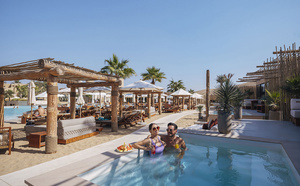








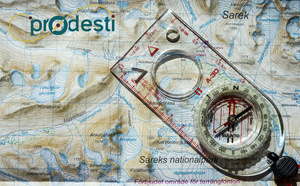






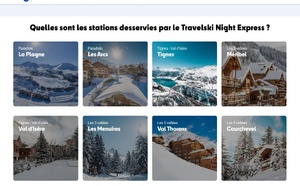
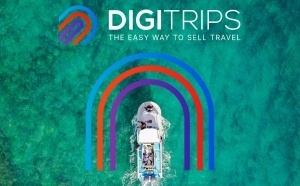


![Tourisme : où sont passés les Chinois ? [ABO] Tourisme : où sont passés les Chinois ? [ABO]](https://www.tourmag.com/photo/art/large_16_9/87929923-62307593.jpg?v=1744721842)



